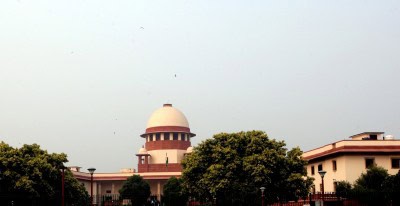New Delhi, Sep 18 : The Supreme Court on Friday permitted the registration of BS-IV vehicles, purchased on or before March 31 this year, which are necessary for municipal corporations in Delhi to carry out essential public utility services.
A bench headed by Chief Justice S.A. Bobde and comprising Justices A.S. Bopanna and V. Ramasubramanian said: “If the purchase had been made on or before March 31, 2020 and these vehicles are BS-IV compliant, such vehicles necessary for the Municipal Corporation to carry essential public utility services should also be registered. But such cases shall be scrutinised by the Environment Pollution Control Authority (EPCA).”
In 2018, the top court had ruled that no BS-IV compliant vehicle would be sold or registered in India from April 1, 2020.
Applications came up for hearing before the top court in connection with registration of three types of vehicles: CNG vehicles, BS-IV compliant vehicles and BS-VI compliant vehicles being used for essential public utility services.
“Insofar as CNG vehicles are concerned, there cannot be any valid rejection to the vehicles, as the emission from these vehicles is within the limits. Therefore, we direct that these vehicles may be registered,” said the bench.
The top court observed that April 1, 2020 onwards BS-VI norms came into force and vehicles purchased up to March 31 this year were BS-IV compliant.
“Admittedly the emission from BS-VI compliant vehicles is within the norms and hence the vehicles purchased on or after April 1, 2020 and which are BS-VI compliant, should also liable to be registered,” it said.
The bench noted that vehicles purchased up to March 31, 2020 which are BS-IV compliant, must be registered with the E-Vahan Portal before the cut-off date to establish the date of purchase. “In order to avoid repeated applications being filed before this Court just for the purpose of getting registration, we direct that the EPCA shall scrutiny the pending cases and submit a report to this Court so that a common order could be passed without the necessity for several interlocutory applications”, said the top court disposing of the applications.
–IANS/
ss/ash

